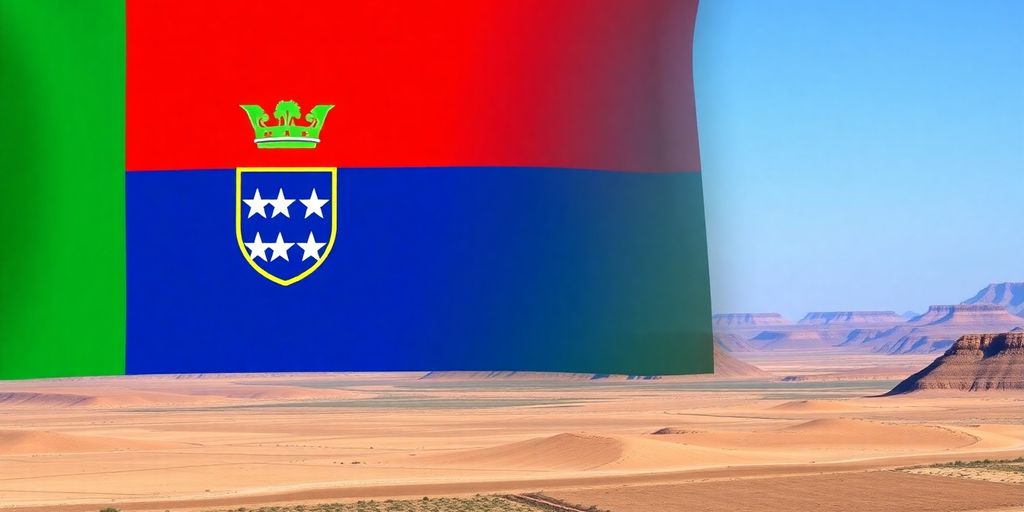Slovenia has officially reaffirmed its support for Morocco’s autonomy initiative regarding Western Sahara, marking a significant diplomatic alignment. This announcement was made during a joint press conference in Ljubljana by Slovenia’s Deputy Prime Minister and Foreign Minister Tanja Fajon and her Moroccan counterpart Nasser Bourita. The support comes as Slovenia holds a non-permanent seat on the UN Security Council until 2025, emphasizing its commitment to a peaceful resolution of the long-standing conflict.
Key Takeaways
- Slovenia endorses Morocco’s 2007 autonomy plan as a viable solution for Western Sahara.
- The support aligns with Slovenia’s position as a non-permanent member of the UN Security Council.
- Both countries aim to enhance bilateral relations through economic cooperation and diplomatic engagement.
Slovenia’s Position on the Autonomy Initiative
During the press conference, Fajon described Morocco’s autonomy plan as a solid foundation for a definitive solution to the regional dispute. She commended Morocco’s serious and credible efforts to resolve the issue, reiterating Slovenia’s backing of the UN-led political process. This support is consistent with previous statements made during Fajon’s official visit to Rabat in June 2024.
Fajon emphasized the importance of adhering to UN Security Council resolutions, including the latest Resolution 2756, which calls for all parties to engage in a constructive dialogue. Slovenia’s endorsement adds to a growing list of countries, including Spain and France, that have recognized Morocco’s initiative as a legitimate path forward.
Strengthening Bilateral Relations
In addition to political support, Slovenia and Morocco are set to enhance their bilateral ties through various initiatives. The two countries have agreed to open embassies in each other’s capitals, with Slovenia’s embassy in Rabat expected to open in June 2025. This move is seen as a milestone in their diplomatic relations, fostering closer cooperation in areas such as trade, renewable energy, and logistics.
Both ministers discussed the potential for economic forums to facilitate exchanges between business communities in Slovenia and Morocco. They also highlighted the importance of academic cooperation between their respective universities, aiming to empower youth and promote innovation in the Mediterranean region.
Regional Stability and Cooperation
Fajon expressed Slovenia’s appreciation for Morocco’s role as a key player in regional stability, particularly in the context of ongoing geopolitical challenges. She praised the reforms initiated by King Mohammed VI, which aim to enhance Morocco’s political, economic, and social landscape.
The two countries also discussed collaborative efforts in addressing migration issues, with plans for expert meetings to be held in Ljubljana. This cooperation reflects a shared commitment to maintaining security and stability in their regions, in line with the principles of the UN Charter.
Conclusion
Slovenia’s reaffirmation of support for Morocco’s autonomy initiative marks a significant step in international diplomacy regarding the Western Sahara conflict. As both nations work towards strengthening their bilateral relations, the emphasis on cooperation and dialogue underscores a mutual commitment to peace and stability in the region. The growing international backing for Morocco’s autonomy plan signals a potential shift in the dynamics of the long-standing dispute, paving the way for a more collaborative approach to conflict resolution.
Sources
- Slovenia reaffirms support for Morocco’s Sahara autonomy plan, Yabiladi.com.
- Slovenia to open embassy in Rabat – The North Africa Post, The North Africa Post.
- Slovenia backs Morocco’s autonomy plan for the Sahara – The North Africa Post, The North Africa Post.
- Slovenia Expresses Great Appreciation for His Majesty the King’s Leadership, Morocco’s Role as Key Player in
Regional Stability, Africa.com. - Slovenia Reaffirms Support for Morocco’s Autonomy Plan for Western Sahara Slovenia Reaffirms Support for
Morocco’s Autonomy Plan for Western Sahara, Morocco World News.






